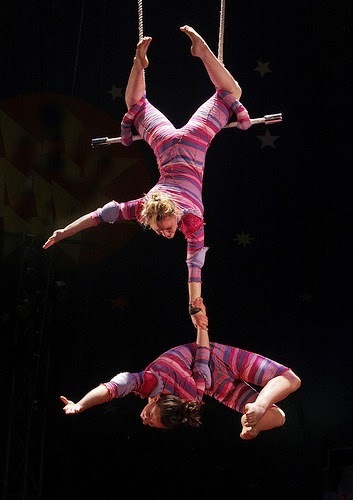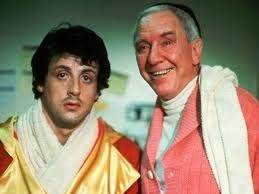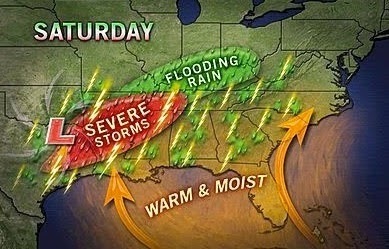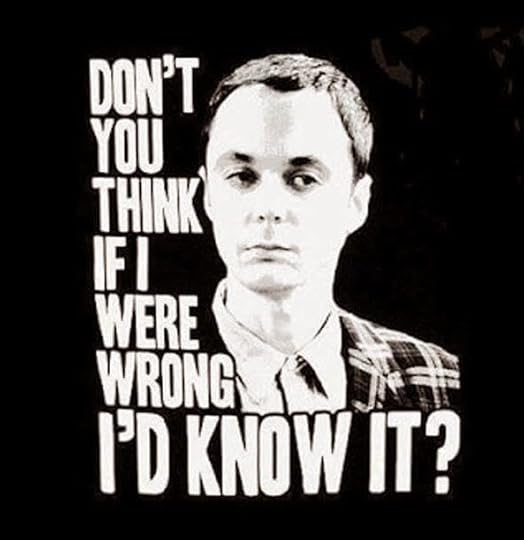Joshua Rivedal's Blog, page 4
August 21, 2014
Repercussions of the Hesitant Trapeze Artist

During a paid performance, the flying trapeze artist who flinches before she leaps is the flying trapeze artist who ends up breaking a leg (not in the good, show business way).
The way to avoid the hesitating flinch is… trust (duh, Josh).
The way to build the trust is rehearsal. Hundreds if not thousands of attempts to leap off of boards into the arms of a partner or the bar of a trapeze, several stories above the ground with a net underneath.
Back to trust. Know that the infrastructure you set up for yourself and the weeks you spent on rehearsal and preparation are good enough. Trust that your muscle memory is strong and the neuropaths within your brain are prepared for numerous outcomes.
Don’t flinch… go all in. Put away the technique from rehearsal and act in the present (not the future of “what might be” or the past of “what was”).
Published on August 21, 2014 05:30
August 14, 2014
The Secret Voodoo Behind the World’s Greatest Innovations

Sometimes it’s better to sell and convince based on your intent… and then work like hell to deliver what you promised.
The psychology behind the commitment you made (see: the book Influence by Robert Cialdini) will be too strong a motivator for you to give up or do anything but keep your promise. You’ll do anything and everything in your power to see that you succeed.
Selling and promising on intent is the secret voodoo behind some (if not all) of the world’s greatest innovations. It brings the impossible to I’Mpossible…
Published on August 14, 2014 05:30
August 7, 2014
What the World Needs Now...

I’m thinking about world peace... My mind is bugging out on all the war and violence in the news over the past month or so.
There’s a good deal of awful things happening right now but there’s an abundance of beauty as well.
Instead of focusing on who is doing what to whom, or the overarching philosophy on good vs. evil inside human beings, or some magic potion to fix it all…
Let’s talk about a whole bunch of small actions that lead to our desired action—
The world needs more mentors—you and me.
1) Maybe you don’t know everything2) Maybe you come with a lot of baggage.3) Maybe you don’t have a lot of time.4) Maybe you’ve been told repeatedly that you don’t offer value.
But it’s much more simple than that.
1) You only need to know something.2) It’s all good, baggage makes you interesting3) Totally cool, you don’t need to have a lot of time4) You have value. Every person, whether they know it or not is a teacher.
Being a mentor is as simple as showing a kid how to hit a free-throw in basketball, how to tie their shoe, or your favorite technique on learning to be comfortable in your own skin.
Whatever you know—farming, love, money, relationships, proper flossing techniques—give a little of that knowledge away. We’re all in this together.
The mentorship you provide isn’t going to solve all of the world’s problems in one fell swoop—nor will the mentorship of one billion. But the abundance you provide to another person will help them give their own gifts to another person, providing space and time to find new and innovative ways to help the impoverished and hungry and war-stricken.
All it takes is one single act of kindness today—your finding the time to be a mentor.
You will have officially left the world better than when you found it, which is part of the ultimate goal while we’re spinning around on this rock.
Published on August 07, 2014 05:30
July 31, 2014
Two Time Management Tricks that Will Revolutionize the Way You Complete Your Goals
 I need to learn to wake board. I should start a side business. I’ve been working on this brick fireplace for three years and can’t finish. I wish I could learn Mandarin. I really have to start exercising soon.
I need to learn to wake board. I should start a side business. I’ve been working on this brick fireplace for three years and can’t finish. I wish I could learn Mandarin. I really have to start exercising soon. I don’t have enough time to do the things I want to do. I’m SO busy. There’s so much going on.
I feel that. People have children to deal with, unexpected life events, ridiculous work schedules, and they need some down time in between too (Harry Potter movie marathon anyone?).
The key to it all is maintaining a tight schedule... duh. Nothing you haven’t heard before. But I’ve got two little tricks, maybe stuff you’ve heard before but maybe not, that help me stick to keeping a tight schedule on a long-term basis… so I can be working on touring my one-man show, three new book series, consulting work, the beginnings of writing a new one-man show, and some down time in between—all at the same time.
1) Be the Chief and not the Hungry Hunter—Schedule your time at least one week in advance. This is assuming you schedule your time at all, which you should. If you wake up on any given day and map out what you want done, it tends to be an exercise in putting out fires of the immediate and the seemingly urgent—rather than a process in keeping one eye in the moment and one eye on the future. Or, in terms of our hunter-gatherer ancestors, it’s the difference of waking up and eating what you kill that very day, versus planning out how, when, and where you’re going to gather food for the tribe for the next week. In the former you’re the hungry hunter constantly chasing, while in the latter you’re able to be the Chief in planning for higher level activities like building a nice shelter, irrigation for the tribe, and building grain silos.
2) In case of Fire, Break Glass and… Schedule contingency time. Example: I know I need to get X, Y, Z done this week. I loaded up all my work on Monday though Thursday and even scheduled in my down time. While going through the week, I found that I played too hard on Wednesday (totally cool). I worked too long on X and Y on Thursday because I was in the zone. I even had an unexpected doctor visit on Tuesday. But in my calendar when I was planning my week, I gave myself a block of time on Friday 2-6pm, as contingency time—time to work on all my leftovers from the week. So, I’m still able to complete most if not all of my tasks for the week. I don’t feel guilty for missing out on certain things throughout the week. And I’m able to work, play, and leave time for unexpected events—making for a well-rounded existence.
We all have 1440 minutes in the day—might as well put all of them to good use.
I hope these two little tricks are helpful.
Published on July 31, 2014 05:30
July 24, 2014
Harnessing Your Motivator

I love sports—not enough to spend time watching hours of it, but enough to read about it and watch a few championship games.
Some of the greatest athletes in the world have a motivation to be the best in the world at their job—a drive that’s unparalleled.
But how does a person keep that motor revving at such a high level for extended periods of time? Loving your job isn’t simply enough of a motivator to complete your goals.
In the movie Rocky, the title character Rocky has a coach named Mick—a curmudgeon of an old man who gets every ounce of effort out of Rocky so he can eventually become a boxing champion (spoiler alert: he doesn’t become a champion until the second film). Mick knows how to push and pull Rocky—the right exercises and drills, what to say and how to say it.
We all have a Mick living inside us, and it’s the greatest athletes who know how to talk to their inner Mick so that he talks back. I call this, “learning to harness your motivator.”
For basketball players Michael Jordan and Larry Bird, they would remember slighted words spoken by an opponent and the next time they saw that opponent, they would compete harder than ever before against that opponent and succeed to unprecedented levels.
For some players their motivation is to help their family out of a desperate financial situation, for others it could be to lift up their entire neighborhood.
There’s so much to learn from the way these athletes approach their jobs to the way we approach our jobs, lives, and dreams.
It’s not always easy to stay motivated once we set ourselves on a certain path or paths: marriage, friendship, artistic pursuits, completing a long-held goal. But if we can harness our motivator, our inner-Mick; the determination… and achievement becomes manageable and tangible.
There are many reasons to set goals: altruism, fame, fortune, proving a person wrong, honor, and so on.
Harnessing your inner-Mick can be especially helpful if you dislike a certain situation you’re in—a crappy job, a bad friendship, a roadblock in your long-held goal. Asking “why am I doing this, and what’s my motivation,” can help (even in small increments) un-stick you when you’re stuck, provide the necessary mindset to go into a job you dislike while pursuing something you enjoy a little more, and even find the inspiration to stay or leave.
One caveat to this whole “Inner-Mick” analogy: in the film, Mick was a little verbally abusive to Rocky… you don’t get to do that to yourself. While you’re harnessing your motivation, it’s better to treat yourself kindly and say nice words, which are much more helpful than saying to yourself, “You’re nuttin’ but a bum.” (You had to see the movie to get the reference.)
Published on July 24, 2014 05:30
July 17, 2014
Weather: The Great Equalizer

Last week, while walking along the outside of Madison Square Park in Manhattan, a funny little thing happened. It was a hot, sunny day. There were very few clouds, save for the giant one directly above me and the rest of Midtown East/Chelsea… and then it started to rain. Not an incessant rain, nor even a scattered shower. It was like the cloud had to wring off a little bit after a quick dip in the pool.
Everyone around me looked up in awe, smiled, and went along their day, except one guy who and a confused look on his face and told me, “Dude, it’s raining.”
I had to stop right there and take a note. Weather is the great equalizer. It affects everyone no matter if you’re rich, poor, child, adult, etc.
When conversation gets awkward or when folks run out of things to talk about, the default topic is almost always the weather. In some cases when the subject is brought up, there are certain people who will get angry about what the weather is doing, a thing they can’t control, and they’ll let it ruin their day.
But there’s no escaping the elements. Rather, people bring tools with them to avoid the weather (an umbrella), or build tools to protect them from the weather (a storm shelter).
Because of the inventions of people who came before us, because of mentors, because of common sense; I—we get to choose how weather affects us. I didn’t bring an umbrella because I forgot to check the 36 hour forecast, I figure out how to remember to consistently check the forecast so I don’t get drenched on the way to work. The snow is interrupting my outdoor basketball charity benefit, I don’t get mad, we find an indoor court and move the game.
The weather is a great teacher. We are constantly having to adjust to the whim and will of mother nature but forget the things we’ve learned from her when its time to apply those practical lessons to life, business, creativity, etc. The simplest changes yield the biggest results (i.e. pop open that umbrella). Look to the skies and the temperature around you. How did you adjust last time? Is it time to bring out the raincoat, the snow shoes, or is it better to be huddled inside with some people you love?
Published on July 17, 2014 05:00
July 10, 2014
I Admit it… I Was Wrong

I made a little boo-boo last week. I had a moment where I was wrong and in the follow-up, I had the opportunity to make a full apology… and I dropped the ball. I did eventually fix it and made it right—but the whole ordeal got a few of the rusty wheels to start turning in the old noggin. I had to write abut this.
First, a quick side note—I almost titled this post, “Admit it… You Were Wrong.” I was going to make it a general post but that seemed a little disingenuous. Apparently admitting you’re wrong isn’t an easy thing to do… :)
If an apology is warranted, there’s often the inclination to go straight to the half-arsed apology—“I’m sorry if I,” rather than “I’m sorry I did.”
On the New York City subway, whenever a train is stopped preventing you from getting to your destination on time, there’s nothing more annoying than hearing over the speaker system: “We’re sorry for any inconvenience.” They should be sorry for the inconvenience or all inconveniences.
Take full responsibility if it's warranted.
In mid-April I was supposed to perform my show at a college in Tennessee. We had already reschedule once because of a calendar snafu. Just to be safe, I flew out to this school 36 hours in advance. Every single flight was delayed or canceled because of mechanical failure—to the point where I had to cancel my appearance at this school at the very last minute, something I’ve never had to do in the three years I’ve toured my show.
I was angry that the airline let me down. I felt awful that I let the school and the school’s event planner (a very enthusiastic, and now a very disappointed student) down.
First, I didn’t want her to think this was my fault but the airline’s and second, I wanted to see if we could reschedule for the fall of the next school year. I had to broach both of these subjects carefully.
So… I asked her for her mailing address. And I sent her a bouquet of flowers.
With those flowers I said two things, 1) “With this gesture, I want to show that I care about you, 2) “I’m sorry I picked a dumb airline, when all is said and done my absence is my fault.”
The blame game would get me nowhere here. I took responsibility and some extra care, and we eventually did reschedule my appearance at this Tennessee school.
Earlier in this week, while on a lunch break I was watching some South Park. It happened to be an episode that was parodying all of the national dialogue that occurred after Hurricane Katrina hit New Orleans. On the show Stan asks his dad, “Is anyone going to help those people trapped on their roofs in Beaverton?” His dad replies in a serious deadpan, “That’s not important right now. The important thing right now is to figure out whose fault this is.”
Not a direct correlation to an apology, but rather further proof that the blame game gets you nowhere.
This idea of making a genuine and full-fledged apology is a difficult one, but instead of thinking of it as a chore, it could be seen as a tremendous opportunity to strengthen any kind of relationship—a political base, a friendship, spouse to spouse, business to client, or employer to employee.
Published on July 10, 2014 05:30
July 8, 2014
The Good News Project: Vol. 35—Coming to Terms by Dana K.
This is the thirty-fifth edition of The Good News Project: A series where anyone can share a personal story of inspiration or an event in life where they overcame tremendous odds. Everyone has a powerful story to tell and something to teach the world. (Here are guidelines on how you can write for The Good News Project.) Here we have Dana K. with "Coming to Terms"
--
In the middle of my sophomore year at Barnard College, I attended a documentary screening at the annual Athena Film Festival. The film, Brave Miss World, tells the story of Linor Abargil, an Israeli model who was crowned Miss World in 1998. Seven weeks before receiving this title, Linor was raped by a travel agent in Milan. The documentary chronicles Linor’s battle to serve justice to her attacker, and the subsequent work she began to help other survivors. I was incredibly moved by Linor’s strength and bravery. Little did I know that soon, this film would save my life.
Three months later I was raped and beaten by a stranger in a city far from home. I was twenty-years-old. Physically, he was much stronger than I was, and after he had pinned me down, I had no ability to fight him off. He told me he wouldn’t harm my face because he thought I was beautiful. But he pummeled me and left my body covered in scratches and bruises. It took me several days before I could even utter the word “rape,” and it was months before I was able to recall certain details that my mind had blocked out.
I didn’t tell anyone about what happened, but my immediate thoughts turned to the film I had seen a few short months before. While I was scared and shaken, I was quick to understand that I was a survivor not a victim, and that I was not alone. The film gave me the courage and conviction to move forward. I did initially confide in a few people, including my brother and doctor. I thought the worst was behind me, but I was not prepared for the long road ahead. I didn’t tell my parents or my sister for a long time. Often, it is more difficult to share terrible news with those you love the most.
I tried to push the incident out of my mind and just move on—but soon enough I began to display symptoms of PTSD. Nightmares, flashbacks, and panic attacks haunted me. My brother was the only person who consistently checked in on me. I told some friends and suspect a few of them were afraid to talk to me about what had happened. Most friends I had told were very supportive… yet none of them knew how to help me.
Even my psychiatrist failed to follow through. When we finally scheduled a visit two months after the rape, she forgot and missed the appointment. I tried seeking out support groups in New York, but was unsuccessful. Every lead resulted in a dead end. When I found a support group at a hospital, they denied me entry because of their rule that attendance could only be up to six months after the assault. They simply emailed me to advise I was not allowed to join. They offered an individual meeting, but since I was already shut out of the group, I wasn’t interested.
I reached out to my school’s counseling center at the beginning of the Fall Semester. They were kind and promised to help me find a group. They sent one follow-up email, and then I never heard from them again. About a month later, I had a particularly crippling panic attack in my dorm room. My roommate called Health Services but they told her since it was Sunday evening I had to go to an emergency room. I went back to the counseling center later that week, and this time they gave me the phone number of a clinic in Manhattan. I called to make an appointment, but because I was not suicidal, the earliest they offered me was more than a month later. I knew I would not last that long.
With the help of my parents in whom I finally confided, and my roommate, I found a private therapist. We worked together through intensive therapy, often meeting three times a week. During this time, I was carrying a full load of courses, working in an internship off-campus and an active member of committees for both Barnard College and the Columbia/Barnard Hillel.
During the summer, I met with the Hillel rabbi, and told him what happened to me. I asked him to help me create a program in school relating to mental health awareness. I needed to channel my energy to making something positive evolve from this horror—to make sense of something so senseless. That was the day the Columbia/Barnard Hillel’s Mental Health Awareness Month was born. I emailed Cecelia Peck, the directorof Brave Miss World, and told her my story. She responded within twenty minutes, giving me the confidence boost I needed. We screened her film on Wednesday, November 20, 2013. Watching Linor on screen again emboldened me to address the audience after the film and describe what happened to me. This was the first time I spoke publicly about the incident.
The decision to write for The I’mpossible Project is not an easy one, but an important part of my healing process. It’s daunting to imagine the many people who will read this article and learn what happened to me: extended family, close friends, ex-boyfriends, even strangers. I do not feel shame for what happened, and telling my story is part of the feeling of empowerment and control that I now crave. Rape can happen to anyone. My goal is to give hope and encouragement to other survivors of rape that they should not be afraid to ask for help nor get discouraged if they reach some dead ends.
It has been a little over a year since I was raped. Some days are worse than others, but I grow more confident each day. I’ve reached a level of clarity that I never thought I could. What I experienced was horrible, but I am turning this trauma into a catalyst for change; in hopes that my story and my actions can help someone the way Linor’s helped me.
--
In the middle of my sophomore year at Barnard College, I attended a documentary screening at the annual Athena Film Festival. The film, Brave Miss World, tells the story of Linor Abargil, an Israeli model who was crowned Miss World in 1998. Seven weeks before receiving this title, Linor was raped by a travel agent in Milan. The documentary chronicles Linor’s battle to serve justice to her attacker, and the subsequent work she began to help other survivors. I was incredibly moved by Linor’s strength and bravery. Little did I know that soon, this film would save my life.
Three months later I was raped and beaten by a stranger in a city far from home. I was twenty-years-old. Physically, he was much stronger than I was, and after he had pinned me down, I had no ability to fight him off. He told me he wouldn’t harm my face because he thought I was beautiful. But he pummeled me and left my body covered in scratches and bruises. It took me several days before I could even utter the word “rape,” and it was months before I was able to recall certain details that my mind had blocked out.
I didn’t tell anyone about what happened, but my immediate thoughts turned to the film I had seen a few short months before. While I was scared and shaken, I was quick to understand that I was a survivor not a victim, and that I was not alone. The film gave me the courage and conviction to move forward. I did initially confide in a few people, including my brother and doctor. I thought the worst was behind me, but I was not prepared for the long road ahead. I didn’t tell my parents or my sister for a long time. Often, it is more difficult to share terrible news with those you love the most.
I tried to push the incident out of my mind and just move on—but soon enough I began to display symptoms of PTSD. Nightmares, flashbacks, and panic attacks haunted me. My brother was the only person who consistently checked in on me. I told some friends and suspect a few of them were afraid to talk to me about what had happened. Most friends I had told were very supportive… yet none of them knew how to help me.
Even my psychiatrist failed to follow through. When we finally scheduled a visit two months after the rape, she forgot and missed the appointment. I tried seeking out support groups in New York, but was unsuccessful. Every lead resulted in a dead end. When I found a support group at a hospital, they denied me entry because of their rule that attendance could only be up to six months after the assault. They simply emailed me to advise I was not allowed to join. They offered an individual meeting, but since I was already shut out of the group, I wasn’t interested.
I reached out to my school’s counseling center at the beginning of the Fall Semester. They were kind and promised to help me find a group. They sent one follow-up email, and then I never heard from them again. About a month later, I had a particularly crippling panic attack in my dorm room. My roommate called Health Services but they told her since it was Sunday evening I had to go to an emergency room. I went back to the counseling center later that week, and this time they gave me the phone number of a clinic in Manhattan. I called to make an appointment, but because I was not suicidal, the earliest they offered me was more than a month later. I knew I would not last that long.
With the help of my parents in whom I finally confided, and my roommate, I found a private therapist. We worked together through intensive therapy, often meeting three times a week. During this time, I was carrying a full load of courses, working in an internship off-campus and an active member of committees for both Barnard College and the Columbia/Barnard Hillel.
During the summer, I met with the Hillel rabbi, and told him what happened to me. I asked him to help me create a program in school relating to mental health awareness. I needed to channel my energy to making something positive evolve from this horror—to make sense of something so senseless. That was the day the Columbia/Barnard Hillel’s Mental Health Awareness Month was born. I emailed Cecelia Peck, the directorof Brave Miss World, and told her my story. She responded within twenty minutes, giving me the confidence boost I needed. We screened her film on Wednesday, November 20, 2013. Watching Linor on screen again emboldened me to address the audience after the film and describe what happened to me. This was the first time I spoke publicly about the incident.
The decision to write for The I’mpossible Project is not an easy one, but an important part of my healing process. It’s daunting to imagine the many people who will read this article and learn what happened to me: extended family, close friends, ex-boyfriends, even strangers. I do not feel shame for what happened, and telling my story is part of the feeling of empowerment and control that I now crave. Rape can happen to anyone. My goal is to give hope and encouragement to other survivors of rape that they should not be afraid to ask for help nor get discouraged if they reach some dead ends.
It has been a little over a year since I was raped. Some days are worse than others, but I grow more confident each day. I’ve reached a level of clarity that I never thought I could. What I experienced was horrible, but I am turning this trauma into a catalyst for change; in hopes that my story and my actions can help someone the way Linor’s helped me.
Published on July 08, 2014 05:30
July 3, 2014
The Best Feeling in the World Is…

Winning after betting on yourself.
One of the most uncomfortable feelings in the world is placing that bet… or even more so, placing that bet after having gambled on yourself and lost.
In absolutes, it’s difficult to say that taking a risk on yourself is the most uncomfortable feeling (being forced to watch a Honey Boo Boo marathon, anyone?).
It is a little easier to say that winning after betting on yourself is the best feeling in the world because it encompasses so many moments in life.Asking someone out on a dateQuitting your job to start a new businessAsking for what you wantBecoming an astronautReaching out for helpSaying “I love you”Saying to any amount of people “I made this for you”It’s really difficult to place that bet on ourselves—in fact it’s a habit ingrained in most of us to not place bets on ourselves. “You’re not good enough,” “You’re not smart enough,” “You don’t look enough like the people on TV,” is just some of the bile thrown in our faces from a young age.
As is, you, I, we are simply enough to make and win that bet.
Even when you think you’ve gotten to the point where you’ve learned to tune those negative “not enough” voices out, every once-and-a-while they can make an unwanted appearance. It’s truly an ongoing and an never-ending process to find ways to keep the negative “not enough” voices at bay.
Calculate the odds. Insulate from huge losses. And know that sometimes it’s okay to take an enormous gamble. You could lose a lot… but you could also win big.
The good news on this kind of betting is that there’s no risk of addiction, ruin, and permanent defeat. The rules, unlike poker or roulette, don’t exist to prevent you from winning. The rules already in place are an opportunity for you to create the game that you want to play.
Published on July 03, 2014 05:30
June 26, 2014
Just Because You Can Do Something Doesn’t Mean You Should

Just because you can add spammy commercials and ads to your blog doesn’t mean you should.Just because you can charge me for refills of my drink without telling me doesn’t mean you should.Just because you can filibuster a proposal in Congress doesn’t mean you should.Just because you can legally pay a certain wage or compensation package… and not someone’s actual worth, doesn’t mean you should.Absolutely no judgement on any of those scenarios above (though any one of them can be quite frustrating to deal with).
But the idea of “just because you can” is a shortcut, that invariably will not lead to long, sustainable success (of course, there are exceptions to everything). Find appropriate ways to advertise your service or generate revenue from your partnersOpen and honest is the best policy. The four extra dollars you make from me on this visit, doesn’t account for the fifty I could spend if I make a return visit.Try to find a compromise from the get-go instead of playing political maneuvering games. You work for the people and not the party or self-interest.A happy and healthy employee will produce a greater return than the pennies you’re pinching and saving.
Strategy that involves a win (even a partial one) for the other party, along with open and honest communication seems to be a bit more difficult and uncomfortable; but the way to plant seeds for multiple future wins instead of an immediate, sterile (unable to produce fruit or offspring), and singular win.
Published on June 26, 2014 05:30



